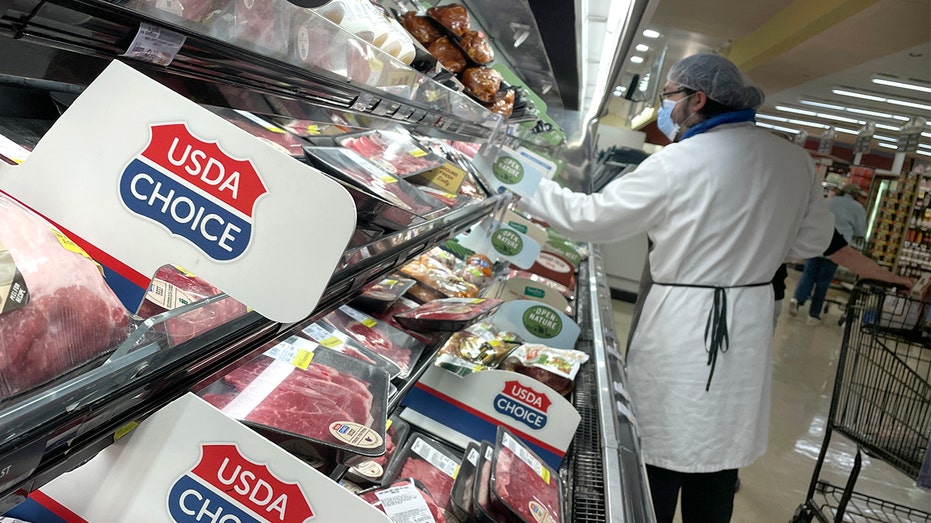Fox Business Flash top headlines for November 11
Check out what’s clicking on FoxBusiness.com.
A top economic advisor in the Obama administration said Thursday that federal spending for coronavirus relief has contributed to the recent inflation surge.
“A sizable chunk of the inflation we’re seeing is the inevitable result of coming out of the pandemic,” Jason Furman told the Associated Press.
U.S consumers have seen prices jump on everything from bacon to washing machines as the consumer price index reported a 6.2% increase from this time last year on Wednesday.

Pork and beef products are displayed on a shelf at a Safeway store on Oct. 4, 2021 in San Francisco. (Justin Sullivan/Getty Images / Getty Images)
COTTON TELLS BIDEN ADMINISTRATION TO ‘STOP THE MADNESS’ AMID 30-YEAR INFLATION HIGH
Gas has doubled in price and cars are more than 25% more expensive this fall.
Economic experts have attributed this to a combination of reasons, arguing that too much federal funding, in part, has overstimulated the economy.
Roughly 22 million jobs were cut after businesses were forced to close their doors at the beginning of the pandemic in spring 2020.
The federal government moved to cut checks for the unemployed and funneled loans to businesses in an attempt to keep them afloat and prevent a colossal economic collapse.
Furman argued the latest $1.9 trillion relief package pushed through shortly after President Biden took office may have been a step too far.
The federal government handed out new rounds of $1,400 checks for most Americans and relief programs were extended.
CONSUMER PRICES SURGE BY MOST IN 31 YEARS

A help wanted sign is displayed at a gas station in Mount Prospect, Ill., Tuesday, July 27, 2021. (AP Photo/Nam Y. Huh) (AP / AP Newsroom)
But Furman argued lawmakers were so intent on preventing an economic collapse that they “systematically underestimated inflation.”
“They poured kerosene on the fire,” he added.
GOP lawmakers have argued the federal relief programs stopped merely assisting Americans to get through the pandemic and encouraged people to stay home instead of returning to the workforce.
Europe, for example, has experienced supply chain shortages in the aftermath of the coronavirus pandemic, but it is not plagued by the same inflation ramifications.
“Inflation is a lot higher in the United States than it is in Europe,” Furman said. “Europe is going through the same supply shocks as the United States is, the same supply chain issues. But they didn’t do nearly as much stimulus.’’
GET FOX BUSINESS ON THE GO BY CLICKING HERE
The labor crisis has crippled supply chains across the U.S., pushing prices up arbitrarily as businesses try to handle shortages, leading to a 30-year high in inflation.
“Inflation is not slowing. It’s maintaining a red-hot pace,” Furman said. He disputed reassurances from the Federal Reserve that recent inflation increases are merely “transitory” as the economy rebounds from the pandemic.
“They need to stop telling us that inflation is ‘transitory,’ start becoming more worried about inflation, then act in a manner consistent with being worried,” he added.
The Associated Press contributed to this report.



Comments